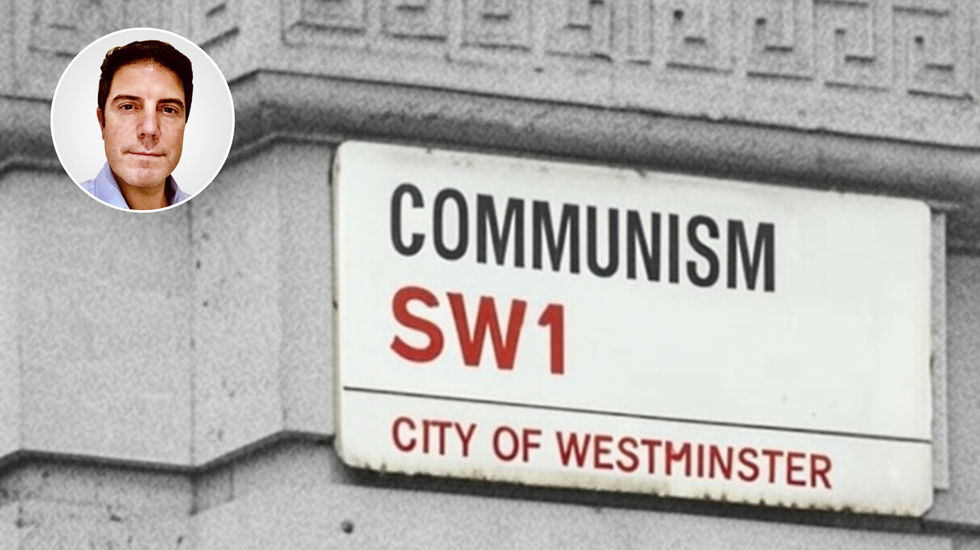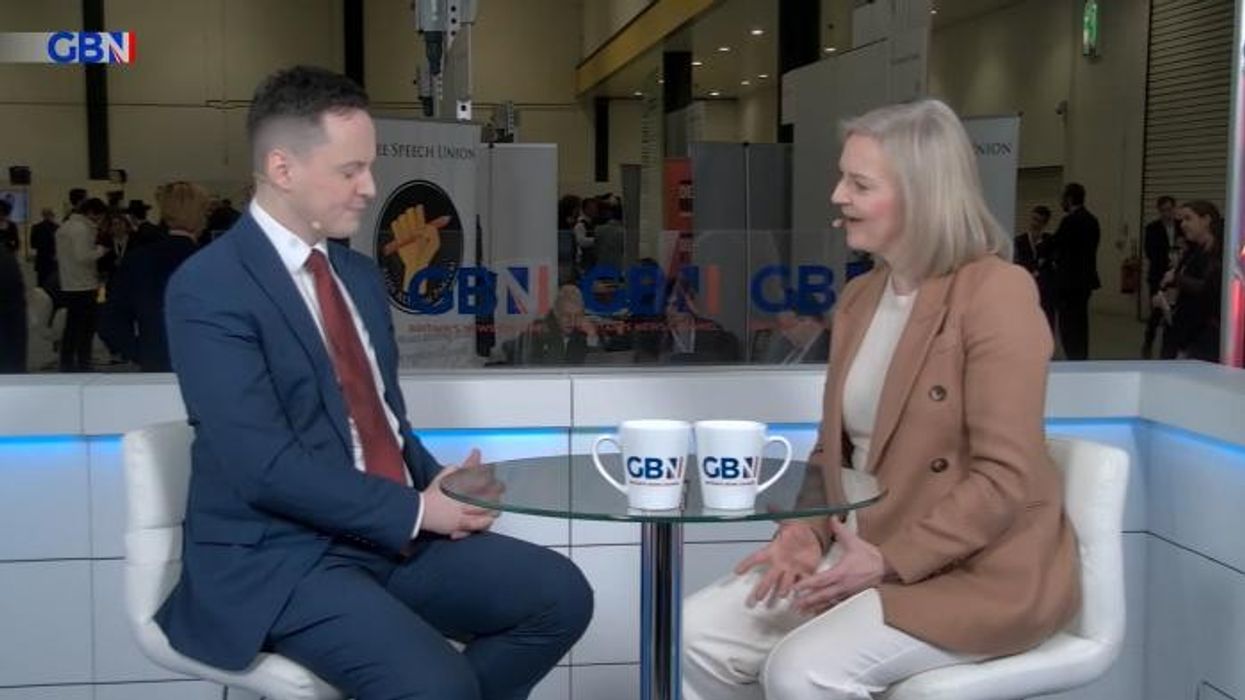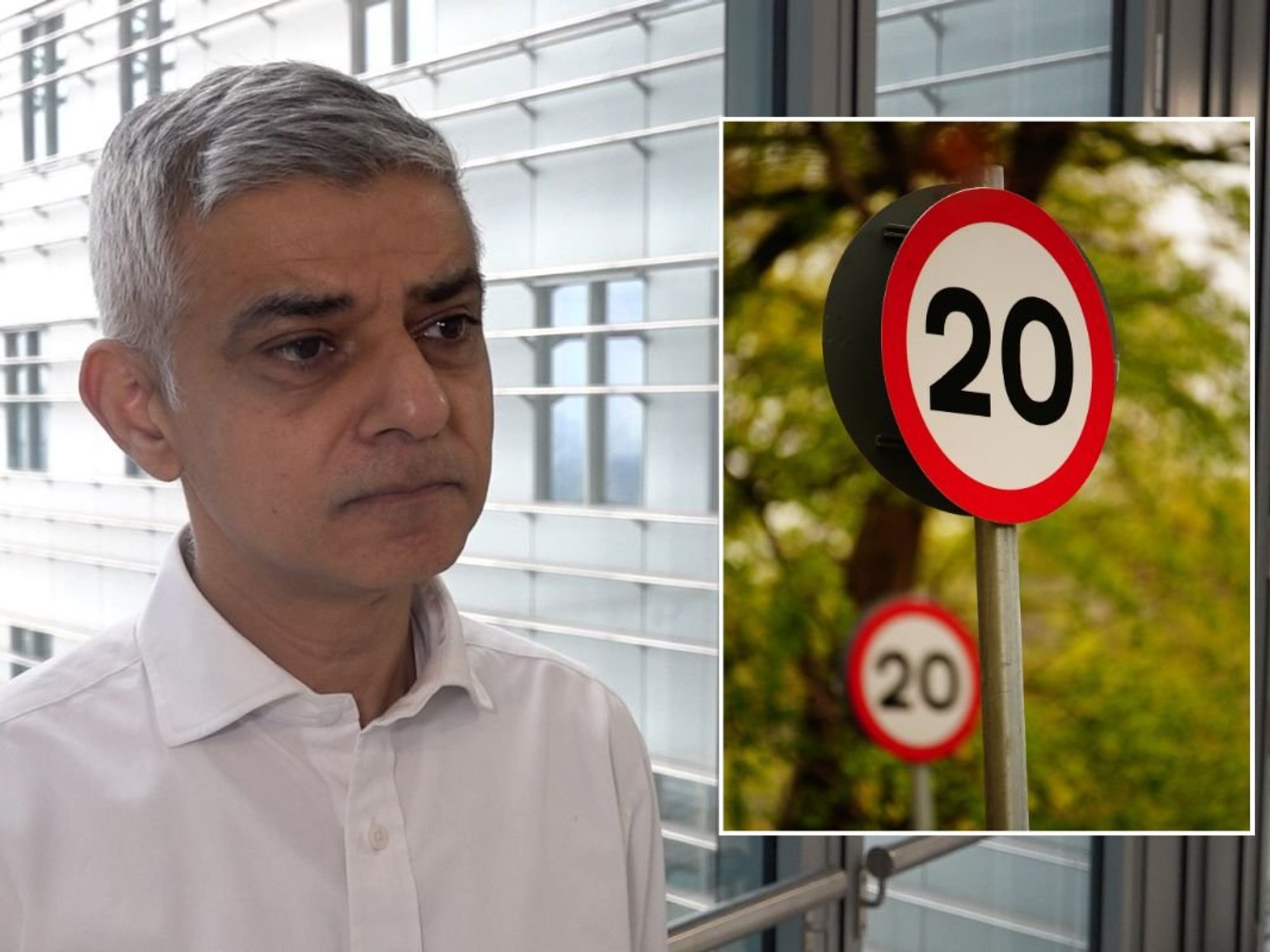You are funding 300 Marxist operations to the tune of £350bn that secretly plan to bleed you dry - Alex Story
OPINION: They work around the clock to by-pass electoral accountability paid for with your life and work
Don't Miss
Most Read
In the aftermath of the Supreme Court’s finding on April 16th which “clarified” what a woman is, Starmer stayed silent on the topic for close to a week.
During an interview on ITN about a week later, when asked whether a “trans woman” was a woman he replied “a woman is an adult female”.
He welcomed the findings because, “it’s real clarity in an area where we did need clarity”.
But did we?
How did we get to a place where the Prime Minister of Great Britain can say something like that without feeling the need to resign forthwith and seek urgent psychiatric help?
He is the holder of the same office as Disraeli, Churchill and Thatcher. He represents how close to the rocks the ship of the British state truly is.
He kneels when asked, dances at Pride Parades, and sells our country’s assets to all and sundry. And amazingly always feels righteous.
In addition, he jumps on every fashionable, which is to say unpopular, bandwagon with the insouciance of someone who knows powerful institutions have his back.
Part of the answer must be found in data which shows the two linked phenomena of out-of-control government spending and simultaneous, and alarming, drops in public sector productivity.
Our national debt has ballooned, our deficit is gaping, and our taxes are rising.
In the meantime, from 1997 to 2024, state productivity fell: from 2019 to 2025, by no less than 8.4 per cent.
The Institute for Government wrote that “the government has put a lot more money into public services, increasing inputs. However, in some services – healthcare in particular – there has not been a commensurate increase in activity”.
While public sector productivity fell by the equivalent of 0.3 per cent every year since 1997, private sector productivity grew at three times the pace.
In short, we pay more for government for a great deal less.
This can be partially explained by the rise of the ideological state.
Our government is no longer there to serve its population. It is there to change it, its habits and its perception of reality.
To force societal change, the game is that you must bypass the paying electorate.
From gender to diversity, all the way to food production and consumption, the fingerprints of ideology are everywhere to be found.
For example, a national survey into public attitudes to ultra-processed foods has been announced.
It is spearheaded by UK Research and Innovation, a £10bn-a-year quango of gigantic size.

You are funding 300 Marxist operations to the tune of £350bn that secretly plan to bleed you dry - Alex Story
|Grok
It is overseen by a consortium a various government departments, “stake holders” and other sundry campaign groups, and loosely defined “representatives from the food industry”, whatever that meaningless verbiage might means.
Bite Back, an activist charity, for instance, is part of it. Not though, we note, the food industry per se.
The results from this supposed objective survey are designed to shape public opinion.
Those who take part in it matter.
Given the participants we can divine the following and it doesn’t bode well for the food industry and consumers: misguided legislation, restrictions, and higher costs.
With the creation of a new Food Strategy Board and a government-funded National Food Survey, we can also expect compulsory targets, enforceable by law, to be brought in. A hammer, as it were, to crack your salted pistachio.
As currently written, the high in fat sugar and salt rules would impact the British tradition of Christmas advertising, among other things.
These demonstrate once again how taxpayer-funded quangos, charity and sundry special interest groups have gained unwanted and unwarranted influence over government policy.
Mostly, it must be added, to the detriment of British business, manufacturers and, ultimately, you and me, the consumer.
It is no surprise then to discover that public trust in NGOs and activist charities has been waning for years.
Back in 1999, in a foreign country called Great Britain, where everybody knew your name, NGOs were the most trusted institutions globally.
Decades later, businesses have surpassed them, according to Edelman Trust Barometer, simply because one takes and the other delivers.
In addition, and not surprisingly, since COVID trust in the media and government has fallen.
More sharply still has been the drop in trust towards NGOs, which are increasingly seen as an out-of-control arm of government.
We didn’t vote for them.
Most people have no idea that they’re dictating government policy, though they intuit it.
Take the recent HFSS (high in fat, sugar, and salt) advertising restrictions as a case in point.
These rules, heavily influenced by health-focused NGOs like Action on Salt and Sugar, will ban 'less healthy' food adverts before 9pm on TV and across online platforms.
Sustainweb.org, a campaigning organisation, funded by the taxpayer, runs the Children's Food Campaign. It also has close ties to the Unions, exemplifying the problem.
They engineer a steady erosion of advertising freedoms in the UK by triggering a steady stream of complaints to the Advertising Standards Authority.
This pressure, supposedly for the greater good (isn’t it always), is designed to create a platform on which an ever more baroque and complex regulatory infrastructure is built.
The result is always the same: less competition, less choice, and higher costs and taxes for you and for me.
The proposed sugar tax on milkshakes and lattes, a regressive tax policy that will punish the working man and his family. It will do little to address obesity.
While the intent may, ostensibly, be to tackle the obesity affliction, the reality is that these blanket bans penalise businesses of all sizes - particularly SMEs that rely on affordable marketing channels to compete with larger brands.
You dispossess the poor first, forcing the concentration of production in the hands of the few and rich to better expropriate them when the time comes. That is Marxist strategy in operation: pure and simple.
At around GBP350 billion per annum, the financial firepower available to our state-funded experts to play the policy insider trading game against our interest is awesome.
There are 300 hundred Quangos, thousands of fully and partially state-funded charities, employing well over 400,000 people, more than four times larger that the British forces.
They work around the clock to by-pass electoral accountability paid for with your life and work.
The patterns are recognisable, the result predictable.
The pre-ordained findings will be released to friendly news outlets, who will start to swarm the airwaves with catastrophism.
They will attack “reactionaries”, who are not on board, and forcing, all through the artifice of various social media platforms, hapless politicians to legislate against something about which they know little.
In short, the taxpayer pays for advocacy groups; government funded charities; biased quangos; government departments; state media; and politicians.
Perhaps our elected representatives should reflect whether listening to a cabal of taxpayer-funded and growth-hostile NGOs is really benefiting our country.
But Starmer knows that he can say and do what he likes without repercussions.
Why? Because he pays £350billion of our money for the institutional support he receives without fail.
For this Teflon anti-democratic infrastructure, he has Blair and Brown to thank as well as Cameron, May, Boris and a few other scallywags I might have forgotten.
The willfully blind run the country for those who see.











